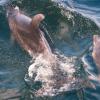Institutional Networks for Inclusive Coastal Management in Trinidad and Tobago Research Paper
The authors consider the role of institutional networks in integrated and inclusive coastal-zone management in Trinidad and Tobago. Drawing on theories of social institutions, a framework for understanding the institutional prerequisites for participatory management is developed. In this framework, distinction is made between institutions at the community, formal-organisational, and national regulatory levels and the means by which institutions adapt to and learn about new issues in terms of networks of dependence and exchange are characterised. The immediate networks between actors (their spaces of dependence) are augmented by wider networks between institutions at various scales (their spaces of exchange). This framework is applied to a case study of resource management in Trinidad and Tobago. Semistructured interviews with key government urban and economic planners, fisheries regulators, and other agents in Trinidad and Tobago, and a participatory workshop for resource managers, are used to identify the perceived opportunities and constraints relating to integrated and inclusive resource management within the social institutions. The findings are analysed through an exploration of the spaces of dependence and exchange that exist in the various social networks at the different institutional scales. The prescriptive relevance of this approach is in the demonstration of the nature of change required in social institutions at all scales to facilitate integrated and inclusive resource management.
Area of interest: Trinidad & Tobago
Year: 2002




